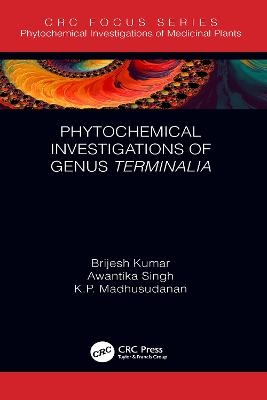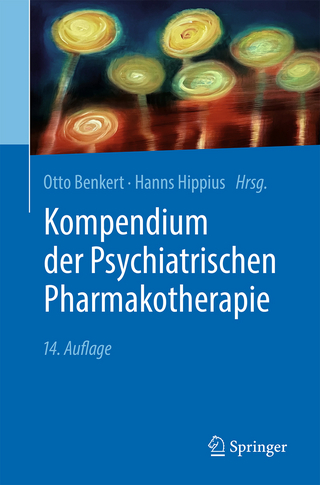
Phytochemical Investigations of Genus Terminalia
CRC Press (Verlag)
978-1-032-01948-2 (ISBN)
Dr. Brijesh Kumar is a Professor (AcSIR) and Chief Scientist of sophisticated analytical instrument facility division, CSIR-Central Drug Research Institute Lucknow, India. He has completed his PhD from CSIR-CDRI Lucknow (Dr. RML Avadh University Faizabad UP, India).Currently he is facility in charge at Sophisticated Analytical Instrument Facility (SAIF) division of CSIR-CDRI. He has to his credit more than 7 book chapters, three book and 145 papers in International journal of repute. His current area of research is applications of Mass Spectrometry tools (DART MS/Q-TOF LC-MS/4000 Q Trap LC-MS/ Orbitrap MSn) for qualitative and quantitative analysis molecules for quality control and authentication/standardization of Indian medicinal plants/parts and their herbal formulations. He is also involved in identification of marker compounds using statistical software to check adulteration/substitution. Dr. Awantika Singh completed her PhD from the Academy of Scientific and Innovative Research (AcSIR), New Delhi, India and carried her research work under supervision of Dr. Brijesh Kumar at CSIR-Central Drug research Institute (CDRI) Lucknow. Her research includes development and validation of LC-MS/MS methods for qualitative and quantitative analysis of phytochemicals in Indian medicinal plants. Dr. K. P. Madhusudanan is a mass spectrometry scientist born in 1947 in Kerala, India. He obtained his doctoral degree in 1975 specializing in Organic Mass Spectrometry in National Chemical Laboratory, Pune, India. He worked as a scientist and Head, Sophisticated Analytical Instrument Facility in Central Drug Research Institute, Lucknow until 2007. His research experience since 1970 includes various aspects of organic mass spectrometry such as fragmentation mechanism, gas phase unusual reactions, positive and negative ion mass spectrometry of natural products using various ionization techniques including DART, effects of metal cationization, LC/MS and MS/MS applications and quantitative analysis of drugs and metabolites. He authored more than 150 research publications. He was a member of the editorial board of Journal of Mass Spectrometry during 1995-2007. He is a fellow of the National Academy of Sciences, Allahabad, India. At present he lives in Kochi.
Contents
List of figures vii
List of tables ix
Preface xi
Acknowledgments xiii
Authors xv
List of abbreviations and units xvii
1 Terminalia: Ethno- and Phytopharmacological Review 1
2 Identification of Bioactive Phytoconstituents
of Terminalia Species by HPLC-ESI-QTOF- MS/MS 43
3 Quantification of Phenolic Compounds in Six Terminalia
Species by UPLC-QqQLIT-MS/MS 89
4 Simultaneous Estimation of Phytoconstituents
in T. chebula Fruit and Its Marketed Polyherbal Formulations 107
References 115
Index 133
| Erscheinungsdatum | 28.07.2021 |
|---|---|
| Reihe/Serie | Phytochemical Investigations of Medicinal Plants |
| Zusatzinfo | 9 Tables, black and white; 9 Line drawings, black and white; 9 Illustrations, black and white |
| Verlagsort | London |
| Sprache | englisch |
| Maße | 138 x 216 mm |
| Gewicht | 285 g |
| Themenwelt | Medizin / Pharmazie ► Medizinische Fachgebiete ► Pharmakologie / Pharmakotherapie |
| ISBN-10 | 1-032-01948-4 / 1032019484 |
| ISBN-13 | 978-1-032-01948-2 / 9781032019482 |
| Zustand | Neuware |
| Haben Sie eine Frage zum Produkt? |
aus dem Bereich


